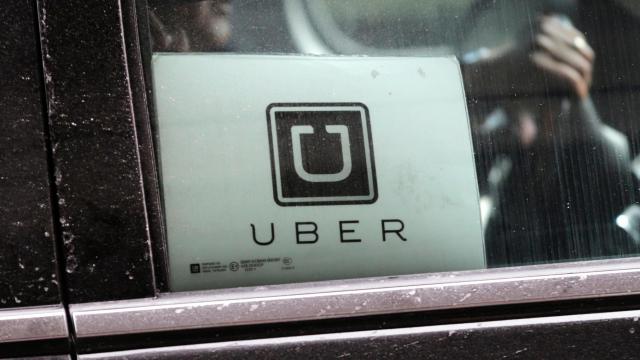A passenger who rode with Jason Dalton — the Uber driver convicted of a 2016 shooting spree in Kalamazoo, Michigan — is suing Uber for allegedly misrepresenting its safety protocols and failing to provide an incident report service.
The passenger, Matt Mellen, claims that, hours before Dalton’s deadly rampage, the driver careened through the streets so recklessly that Mellen called emergency and attempted to contact Uber support. Dalton then shot and killed six people and injured two others.
In the complaint, filed in February, Mellen claims that, on the afternoon of February 20, 2016, Dalton trapped him in the car (or, “kidnapped” him) and hit a passerby. The suit reads:
…the two barrelled down crowded Kalamazoo city roads at break-neck speeds. Matt Mellen yelled for the UBER driver to stop, to pull over….pull over!…to let Matt out. Then a dead-bang impact. The UBER driver smashed into a totally innocent person/people in a car that was in the wrong place….then the UBER driver kept going…unfazed as if nothing had just happened.
Mellen contacted 911 but was unable to reach Uber’s 24/7 incident report line, the suit says. Soon after Mellen attempted to contact Uber, Dalton fatally shot a father and son at a Kia dealership, as well as four people at a Cracker Barrel. He also shot and critically wounded a 14-year-old and a mother protecting children at an apartment complex.
The complaint says that Mellen’s guilt and inability to stop the gruesome attack has given him post-traumatic stress disorder.
The suit further places blame on Uber for the unavailability of the 24/7 incident response team, despite assurances on its site, and for leaving the account active. Nor, Mellen alleges, did they conduct a sufficient background check including criminal and driving records. (Uber claimed after the attack that Dalton was screened and passed a background check. But just before the shooting, Uber settled multi-million-dollar lawsuits that alleged the company didn’t require fingerprints or check the national sex offender registry.)
Mellen’s suit accuses Uber of fraudulently violating its own rules as well as violating the Michigan Consumer Protection Act. In doing so, Mellen also implicates Uber in sending Dalton to passengers where the shootings occurred. In a disturbing interview with investigators, Dalton reportedly said that the app turned him into a “puppet” and that a horned devil with a cow’s head would materialise on the screen whenever the app sent him a job.
Uber did not yet respond to a request for comment.
In 2018, Uber CEO Dara Khosrowshahi wrote in a blog post that Uber was “getting serious about safety” by allowing passengers to share trip statuses with contacts, including a panic button to alert 911, and tightening background checks. In a 2017-2018 safety report, Uber admitted to 5,981 instances of sexual assaults during those two years, as well as 19 fatal physical assaults.
Uber drivers report that the app does little to prevent and compensate them for armed assaults during carjackings. This summer, the Markup identified 124 carjackings of rideshare drivers reported over the previous year and a half; it later found that Uber required a driver to sign a non-disclosure agreement before offering to compensate them for an insurance payment.
Mellen has requested a penalty of $US25,000 ($34,305), plus damages and legal fees.
